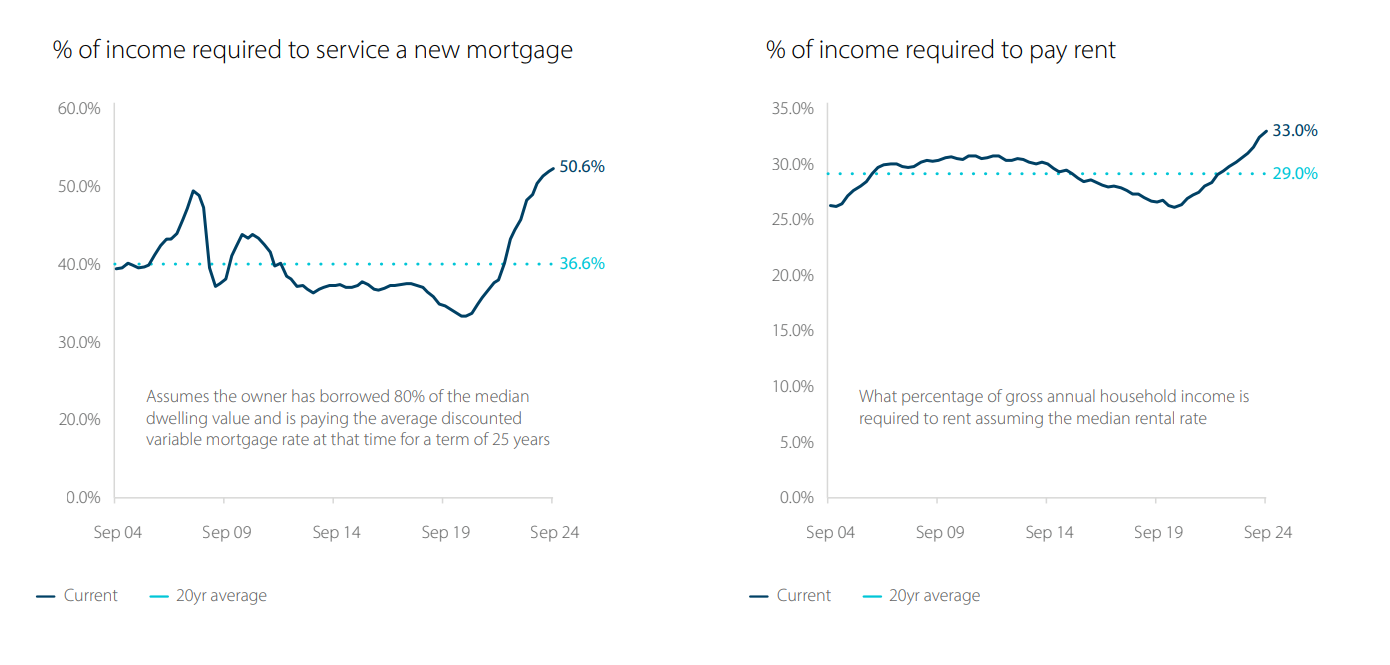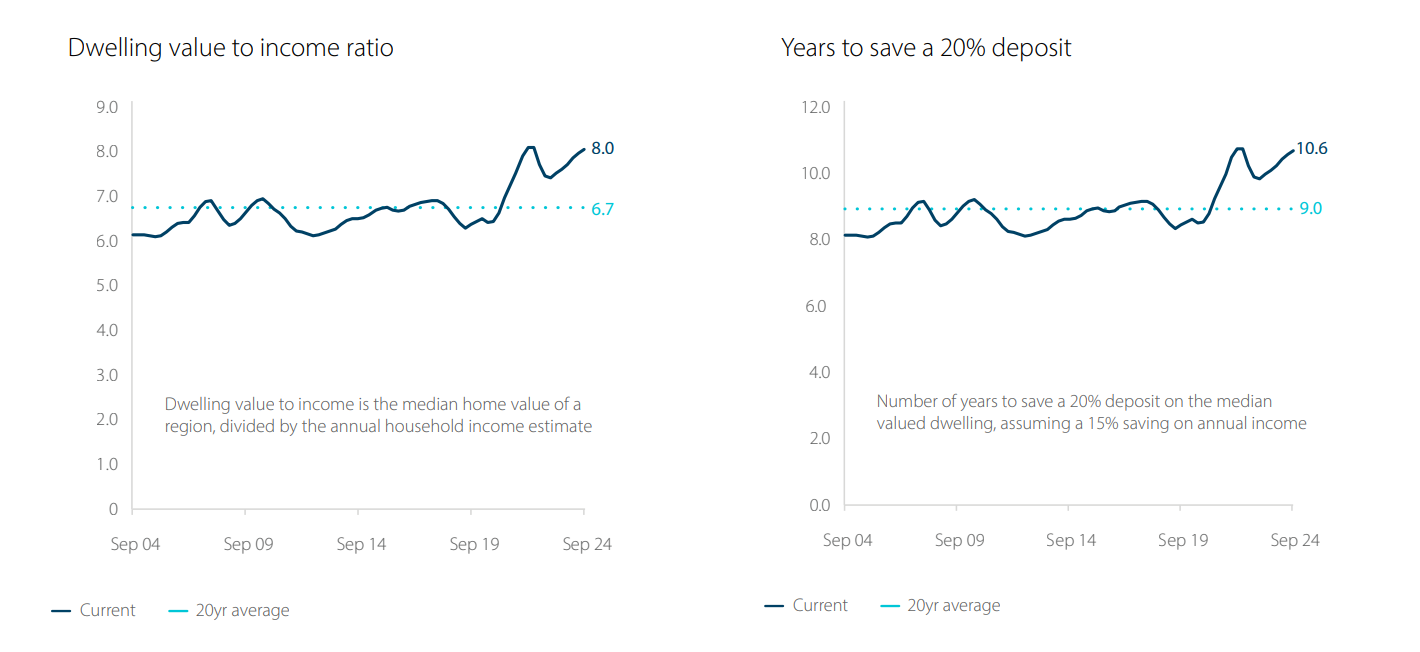

Australia’s housing affordability metrics continued to decline in 2024, driven by rising property values and rents.


National housing affordability measures as of September 2024
As of September, the national median dwelling value reached $807,000, while median weekly rents climbed to $642. This placed the dwelling value-to-income ratio at a record-high 8, surpassing the 20-year average of 6.7.
It now takes the average household 10.6 years to save a 20% deposit, assuming a 15% annual savings rate.
The report highlighted growing disparities in housing affordability, noting that not all households can rely on alternatives like lower deposits, family support, or targeting less expensive homes.
For median-income households, only 10% of the housing market is considered affordable, down from 40% in 2022. Even households in the 75th income percentile, earning $172,000 annually, find only half the market affordable.
“The concentration of homeownership among high-income, high-wealth households continues to grow,” the ANZ CoreLogic report said.
Regional variations were stark. Adelaide saw the steepest decline in affordability, with median dwelling value-to-income ratios climbing from 5.9 in 2020 to 8.9 in 2024.
Sydney remained the least affordable market, requiring 62.1% of income to service a mortgage.
Meanwhile, Hobart showed some recovery, as dwelling values dropped 11.9% from their 2022 peak.
In contrast, Perth and Brisbane experienced sharp affordability declines, with strong demand driving up prices. In Brisbane, over half of household income is now needed for mortgage payments, according to the ANZ CoreLogic report.
While demand softened in late 2024, easing interest rates projected for 2025 may provide limited relief.
ANZ Research anticipates a cash rate reduction to 3.6% by February, potentially lowering mortgage burdens. However, the report cautioned that any gains could be offset by increased credit demand and renewed upward pressure on home values.
Get the hottest and freshest mortgage news delivered right into your inbox. Subscribe now to our FREE daily newsletter.
